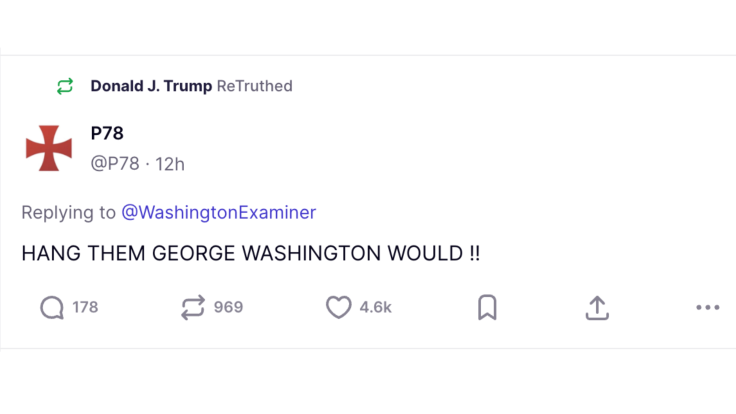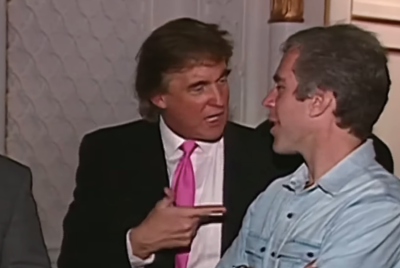Trump Backtracks On 'Death Threat' Line But Doubles Down On Democrats' Fate
An escalatory Truth Social post and a viral veterans' video have left six lawmakers facing threats, prompted security interventions and ignited a new crisis over presidential rhetoric

Trump said he did not mean to threaten lawmakers with execution, yet he repeated that their conduct was 'seditious' and warned they were 'in serious trouble.'
Trump's online denunciation of six Democratic lawmakers, calling their advice to service members to refuse unlawful orders 'seditious behaviour, punishable by death,' set off an extraordinary storm on Capitol Hill and beyond on 20 November 2025.
The president amplified a viral video made by veterans in Congress and reshared posts urging arrest and even hanging, before telling interviewers he was not explicitly threatening death while insisting the lawmakers had committed a grave offence.
The exchange began when Senator Elissa Slotkin posted a short video on 18 November in which she and five other lawmakers urged active-duty military and intelligence personnel to uphold the law and, where necessary, refuse unlawful orders.
The clip, captioned 'Don't give up the ship', names no specific orders but reminds service members of long-established obligations under the Uniform Code of Military Justice. Within days, the clip had been viewed millions of times and became the flashpoint for an escalating confrontation.
What The President Said And Then Said He Hadn't
On 20 November, the president reposted coverage of the video on his social network and added the words: 'SEDITIOUS BEHAVIOR, punishable by DEATH!' He also wrote that the lawbreakers should be 'ARRESTED AND PUT ON TRIAL' and amplified third-party posts calling for hanging.

Within hours, lawmakers who appeared in the video reported violent threats and an immediate surge in security concerns around their offices and homes.
Later, the White House press office sought to walk back the implication that the president wanted executions. Press Secretary Karoline Leavitt told reporters the president was not calling for lawmakers to be killed, though she defended his right to denounce what she described as efforts to encourage troops to defy lawful orders.
In broadcast interviews, Trump himself said, 'I'm not threatening death, but I think they're in serious trouble,' and described his comments as a reference to historical penalties rather than a present plan to carry out violence. The president's emphatic online wording, however, had already catalysed alarm across both parties.
Legal Line, Military Obligation, And Political Theatre
The lawmakers' video invoked established military law: service members must obey lawful orders but are criminally culpable for obeying manifestly unlawful ones, a principle rooted in court precedent and the UCMJ.
For civilians, there is no simple statutory death penalty for 'sedition'; for service members, certain military statutes carry extremely severe sentences in extreme circumstances. That legal nuance was lost in the rush of political rhetoric, which turned a measured reminder of legal obligations into an allegation of treason.
We want to speak directly to members of the Military and the Intelligence Community.
— Sen. Elissa Slotkin (@SenatorSlotkin) November 18, 2025
The American people need you to stand up for our laws and our Constitution.
Don’t give up the ship. pic.twitter.com/N8lW0EpQ7r
Republican and Democratic leaders responded with starkly different frames. Senate Democrats called the president's language a direct threat that risked inciting violence. Some Republicans defended the underlying complaint about the video's content while condemning the president's tone as unhelpful. Security officials reported increased protective measures for the six lawmakers after threats were received.
Trump's insistence that he did not mean to advocate killing elected officials did little to reduce the human and institutional fallout. The episode illustrates how, in an era of instantaneous amplification, a few blunt words from the Oval Office can become a national emergency.
© Copyright IBTimes 2025. All rights reserved.





















